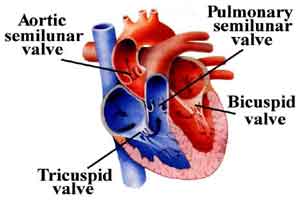- Home
- Editorial
- News
- Practice Guidelines
- Anesthesiology Guidelines
- Cancer Guidelines
- Cardiac Sciences Guidelines
- Critical Care Guidelines
- Dentistry Guidelines
- Dermatology Guidelines
- Diabetes and Endo Guidelines
- Diagnostics Guidelines
- ENT Guidelines
- Featured Practice Guidelines
- Gastroenterology Guidelines
- Geriatrics Guidelines
- Medicine Guidelines
- Nephrology Guidelines
- Neurosciences Guidelines
- Obs and Gynae Guidelines
- Ophthalmology Guidelines
- Orthopaedics Guidelines
- Paediatrics Guidelines
- Psychiatry Guidelines
- Pulmonology Guidelines
- Radiology Guidelines
- Surgery Guidelines
- Urology Guidelines
Vitamin D3 may improve heart functioning

London : A daily dose of vitamin D3 is likely to improve the functioning of the heart in people with chronic failure of the organ, a new study has found.
The results revealed that for patients with heart disease taking vitamin D3 regularly may lessen the need for them to be fitted with an implantable cardioverter defibrillator (ICD), a device that detects dangerous irregular heart rhythms and can shock the heart to restore a normal rhythm.
The patients, in the study, who took vitamin D3 experienced an improvement in heart functioning, as compared to those who did not.
The ejection fraction measuring the pumping of blood from the heart with each heartbeat in heart failure patients is often significantly impaired whereas in a healthy person it is usually between 60 and 70 per cent.
The heart’s pumping function improved from 26 per cent to 34 per cent, in patients who took Vitamin D3.
“This is a significant breakthrough for patients. It is the first evidence that vitamin D3 can improve heart functioning of people with heart muscle weakness known as heart failure,” said led researcher Klaus Witte from the University of Leeds in Britain.
The study involved more than 160 patients from Leeds who were already being treated for their heart failure using proven treatments including beta-blockers, ACE-inhibitors and pacemakers.
The targeted patients were asked to take vitamin D3 or a dummy (placebo) tablet for one year. Those who took placebo, there was no change found in cardiac function.
The findings could make a significant difference to the care of heart failure patients as ICDs are expensive and involve an operation, the researchers maintained.
Heart failure affects more than 23 million worldwide. The condition can affect people of all ages, but it is more common in older people more than half of all people globally with heart failure are over the age of 75.
The findings were presented at the American College of Cardiology 65th Annual Scientific Session & Expo in Chicago, US.

Disclaimer: This site is primarily intended for healthcare professionals. Any content/information on this website does not replace the advice of medical and/or health professionals and should not be construed as medical/diagnostic advice/endorsement or prescription. Use of this site is subject to our terms of use, privacy policy, advertisement policy. © 2020 Minerva Medical Treatment Pvt Ltd